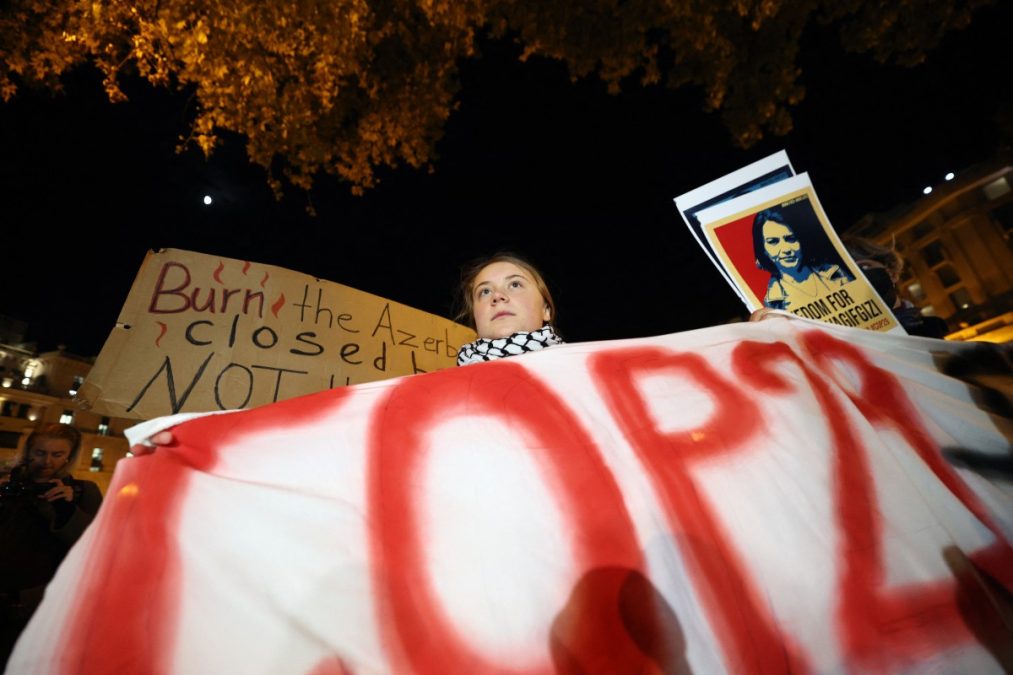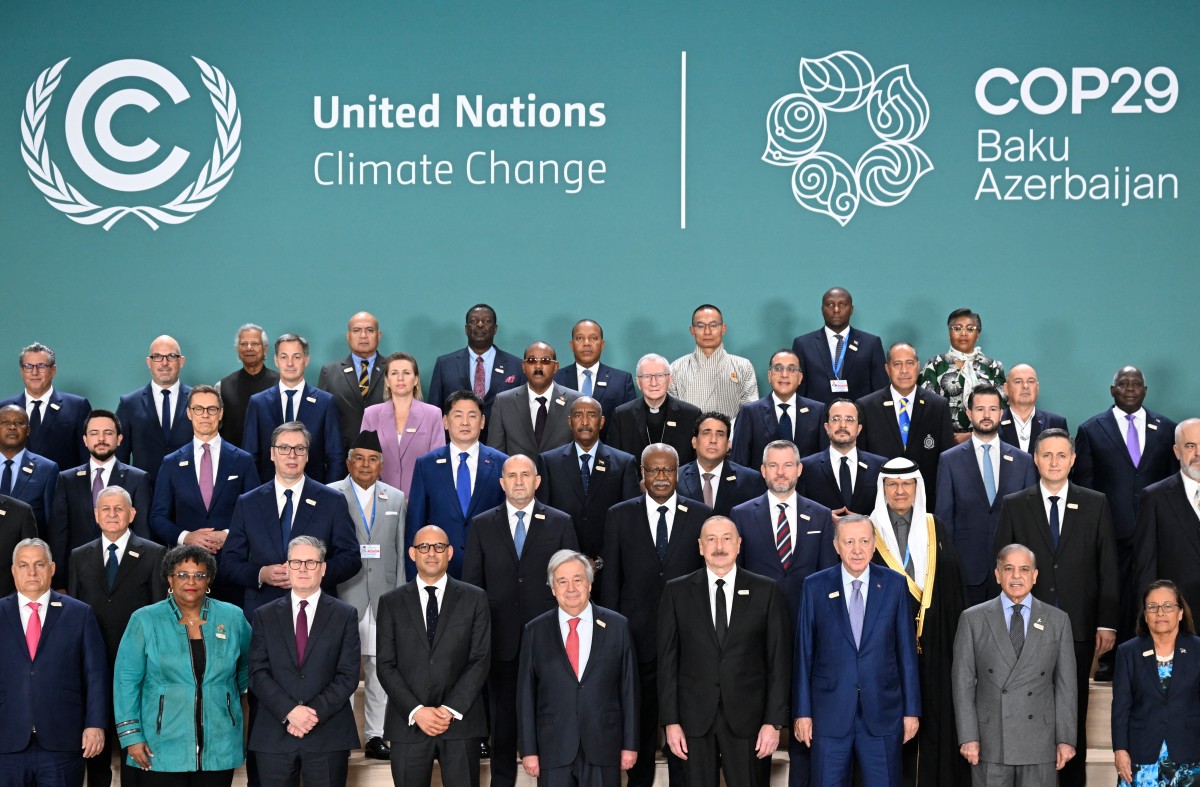World leaders are gathering at COP29 in Azerbaijan to discuss climate commitments and chart our next steps.
The science is clear: if we want a liveable planet, global warming needs to be limited as urgently as possible. While limiting global warming to 1.5°C is still just about possible, our collective ability to meet this target depends on three key factors: ambition, finance and accelerated action.
In a year of unprecedented heat records globally – as droughts, wildfires, heatwaves, storms and heavy rain wreak havoc, threatening lives, livelihoods and our precious biodiversity – the stakes are high. Time is not on our side, but it’s not all doom and gloom and solutions do exist. And so does, at least on paper, the global determination to tackle the climate crisis. But we need to get to work now.
Major emitters, particularly those in the G20 nations, must shoulder the main responsibility, but every nation has a role to play in both reducing emissions and adapting to climate change. The coming months are crucial as countries work on climate action plans, the so-called Nationally Determined Contributions (NDCs) to be submitted by early 2025. Current national plans, even if fully implemented, are far from what the world needs.
What’s needed to limit global warming?
We need to raise ambition – not only because every fraction of a degree of warming matters, but also because these plans can be blueprints for stronger economies and societies. Decarbonizing economies, cutting emissions and building resilience to climate impacts, are profoundly positive.
Finance is rightly a key focus. A headline goal of this conference is to agree on a new financial target to support developing countries in their climate actions after 2025. Developing countries need trillions of dollars to support their mitigation, adaptation, and loss and damage efforts.
According to a UNFCCC report, the financial needs included in countries’ NDCs add up to around $5.8-$5.9 trillion cumulatively by 2030. Others estimate this cost to be between $7.8-$13.6 trillion for the same time period, which for perspective, roughly equates to the annual combined GDP of Japan, Germany and India. Both reports acknowledge that these are likely a vast underestimation.

To meet these demands, the climate finance architecture – both international and domestic – must be reformed. The new collective quantified goal (NCQG) expected from COP29 is not only about numbers; it is a matter of solidarity and justice and a vital step toward building trust.
But as the Emissions Gap Report 2024 highlights, “ambition means nothing without action”. Success depends every bit on raising ambition and finance, but also on truly understanding implementation gaps, and addressing them.
The United Nations Office for Project Services (UNOPS), the UN organization that I lead, is focused on implementation. We provide practical solutions that support countries to deliver sustainable development and climate action. And we do this in areas of expertise, infrastructure, procurement and project management. In short, we are about action. We know that there is often a big gap between lofty aspirations and the reality of people’s lives on the ground. Understanding why gaps exist is the first step in addressing them.
How can we enable successful climate action?
When it comes to translating NDC commitments into action, we see familiar sets of challenges: political will, capacity gaps (in finance, human resources, skills and knowledge) and inadequate data systems that make it difficult to capture needs and monitor progress. There is also a need to incentivize and involve the private sector and to effectively connect decisions, policies, and actions at local, national, and international levels.
UNOPS is a host of the NDC Partnership, a global coalition of more than 130 countries and nearly 100 institutions working to deliver on climate action that drives sustainable development. Responding to the needs of developing countries, this coalition has amassed valuable insights into what enables successful climate action: success is driven by high-level political ownership across local and national levels, with climate action placed at the centre of national development agendas and supported by robust enabling conditions for rapid action and greater investment.
How is the World Economic Forum fighting the climate crisis?
These enabling conditions include ambitious NDCs, clear coordinating mechanisms, NDC implementation and investment plans that align the full capabilities of government and society. Success also depends on mechanisms to sustain collaboration across government and society, along with concerted efforts to build and maintain in-country capacity for effective implementation and progress tracking.
Critically, success relies on strategic partnerships that enable rapid and effective deployment of technical support and finance.
Tripling renewable power generation capacity and doubling energy efficiency are vital to cutting greenhouse gas emissions. UNOPS supports global efforts to decarbonize the building and construction sector, as part of the Global Alliance for Buildings and Construction, together with the United Nations Environment Programme (UNEP), UN-Habitat and others.
This is a high-emitting sector, which in 2021 accounted for around 37% of energy and process-related CO₂ emissions and over 34% of global energy demand. Yet buildings and their emissions are currently largely absent from countries’ NDCs. We work with countries such as Senegal, Ghana, Bangladesh, Sri Lanka and Burkina Faso to help them develop roadmaps to plan their new NDC objectives and identify required actions.
Ensuring a just transition
Our focus is to help make these plans practical and inclusive. We know that while the net-zero transition must be swift, it must also be fair to ensure that no one is left behind in the pace of change
The bottom line is this: every fraction of a degree of warming matters – for lives, for livelihoods and for our planet. We need fast, fair and determined action to cut emissions and build resilience. Finance and policy are crucial parts of the solution, but ultimately, the willingness and capacity of countries to implement climate plans will determine our ability to keep the 1.5°C target alive.
If the big emitters do not step up, the efforts of countries already suffering the worst effects of climate change will have limited impact.
(This article first appeared on the World Economic Forum website)

